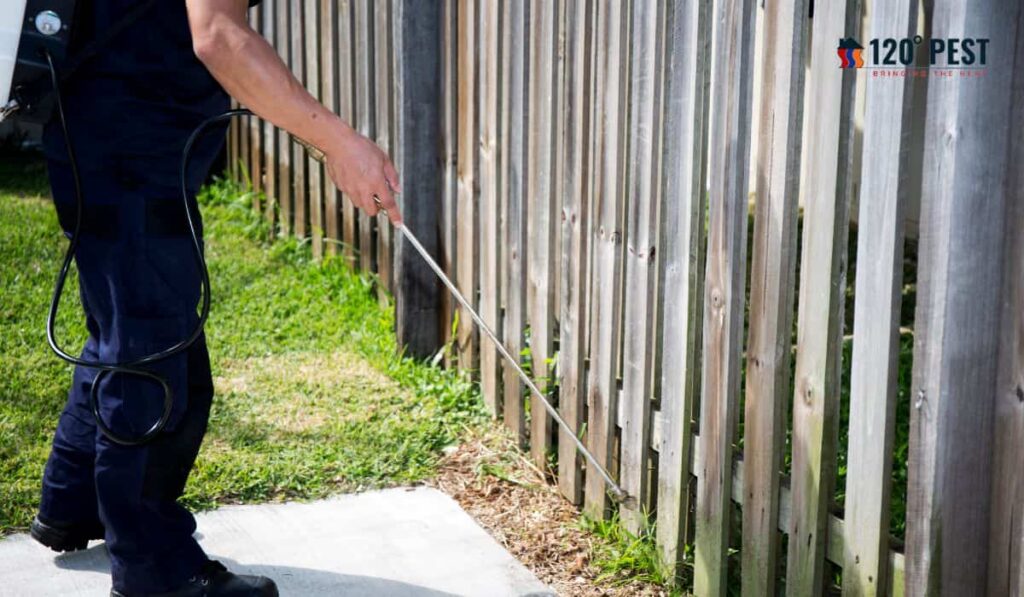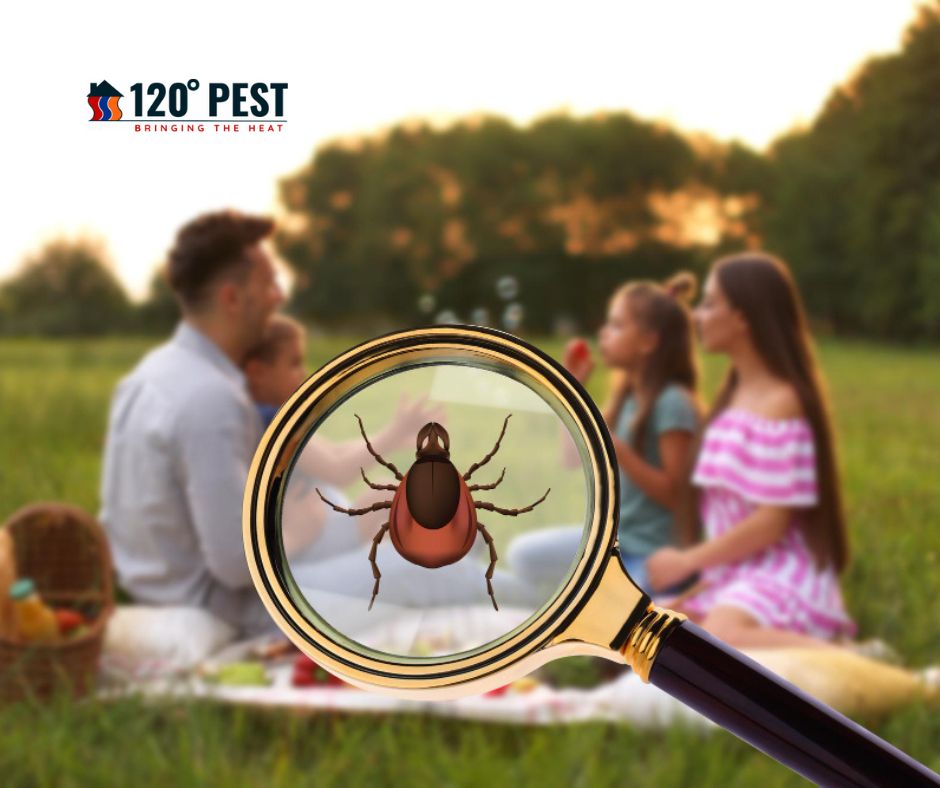In our quest for a pest-free environment, it’s essential to consider the impact of traditional pest control methods on our health and the environment.
Conventional pesticides often contain harmful chemicals that not only pose risks to our families and pets but also contribute to environmental degradation.
Fortunately, there is a growing awareness and availability of eco-friendly pest control solutions that offer safe alternatives without compromising effectiveness.
In this article, we explore various eco-friendly pest control methods that prioritize the well-being of your loved ones and the planet.
Understanding Eco-Friendly Pest Control
Eco-friendly pest control involves the use of natural or organic methods to manage pests while minimizing harm to humans, animals, and the environment.
Unlike conventional pesticides, which may contain synthetic chemicals that can linger in the air and soil, eco-friendly solutions utilize ingredients derived from nature, such as plant extracts, essential oils, and beneficial insects.
These methods target pests selectively, reducing the risk of unintended harm to beneficial organisms and the ecosystem as a whole.
Safe Alternatives for Indoor Pest Control
Natural Repellents: Essential oils like peppermint, citronella, and eucalyptus are effective at repelling common indoor pests such as ants, spiders, and cockroaches.
Dilute the essential oil of your choice with water and spray it in areas where pests are present.
Diatomaceous Earth: This fine powder, made from the fossilized remains of diatoms, is non-toxic to humans and pets but deadly to insects with exoskeletons.
Sprinkle diatomaceous earth in cracks, crevices, and other areas where insects hide to control infestations.
Beneficial Nematodes: These microscopic organisms prey on soil-dwelling pests like fleas, grubs, and termites without harming plants, animals, or humans.
Apply nematodes to the soil in your garden or lawn to naturally reduce pest populations.
Electronic Devices: Ultrasonic pest repellents emit high-frequency sound waves that are unpleasant to pests but harmless to humans and pets.
These devices can deter rodents, insects, and other pests from entering your home.
Eco-Friendly Solutions for Outdoor Pest Control

Companion Planting: Certain plants, like marigolds, basil, and lavender, emit natural compounds that repel pests.
Planting these companion plants alongside vegetables and flowers can help deter insects and attract beneficial insects like ladybugs and bees.
Biological Control: Introducing natural predators, such as ladybugs for aphids or praying mantises for caterpillars, can help keep pest populations in check without the need for chemical pesticides.
Neem Oil: Derived from the seeds of the neem tree, neem oil is a powerful organic pesticide that disrupts the growth and reproduction of many insect pests while being safe for humans, animals, and beneficial insects.
Barrier Methods: Physical barriers like row covers, mulch, and sticky traps can prevent pests from reaching your plants without the need for chemical intervention.
Tips for Implementing Eco-Friendly Pest Control
Identify the Pest: Proper identification of the pest species is crucial for determining the most effective control method.
Maintain Good Hygiene: Keep your home and garden clean and free of food debris to discourage pests from infesting your living spaces.
Monitor Pest Populations: Regularly inspect your home and garden for signs of pest activity to catch infestations early.
Combine Methods: Integrated Pest Management (IPM) involves using a combination of eco-friendly techniques to manage pests effectively while minimizing environmental impact.
The Importance of Eco-Friendly Pest Control
Traditional pest control methods often rely on chemical pesticides, which can have adverse effects on human health and the environment.
Exposure to these chemicals has been linked to various health problems, including respiratory issues, skin irritation, and neurological disorders.
Moreover, many pesticides persist in the environment long after their application, contaminating soil, water sources, and wildlife habitats.
In contrast, eco-friendly pest control solutions prioritize the principles of sustainability, safety, and minimal environmental impact.
These methods utilize natural ingredients and biological controls, offering a holistic approach to pest management that preserves ecosystem balance and promotes long-term resilience.
Advantages of Eco-Friendly Pest Control
Safety: Eco-friendly pest control products are formulated with ingredients that pose minimal risk to humans, pets, and beneficial organisms.
Families can feel confident using these products in their homes without worrying about harmful exposure or toxic residues.
Environmental Sustainability: Conventional pesticides can have far-reaching consequences for the environment, including soil degradation, water pollution, and harm to non-target species.
Eco-friendly alternatives minimize these risks by utilizing biodegradable ingredients and fostering ecological harmony.
Targeted Pest Control: Unlike broad-spectrum pesticides, which indiscriminately kill both pests and beneficial organisms, eco-friendly solutions target specific pests while preserving natural predators and pollinators.
This targeted approach reduces the likelihood of secondary pest outbreaks and promotes overall ecosystem health.
Long-Term Effectiveness: While chemical pesticides may offer immediate results, they often lead to pesticide resistance and rebounding pest populations over time.
Eco-friendly pest control methods focus on disrupting pest life cycles and creating inhospitable environments, leading to sustainable, long-lasting pest management solutions.
Peace of Mind: Choosing eco-friendly pest control allows homeowners to enjoy peace of mind, knowing that they are safeguarding their families, pets, and the environment from harmful chemicals.
By making responsible choices, individuals contribute to a healthier planet for future generations.
Overcoming Challenges in Eco-Friendly Pest Control
While eco-friendly pest control solutions offer numerous benefits, they may present challenges in terms of availability, effectiveness, and cost.
However, ongoing research and innovation are expanding the range of eco-friendly options available to consumers, addressing these challenges and promoting widespread adoption.
Government regulations and consumer demand for safer, more sustainable products are also driving industry shifts towards eco-friendly pest control practices.
Communities can accelerate the transition to a greener, healthier approach to pest management by supporting companies that prioritize environmental stewardship and investing in education and outreach efforts.
Conclusion
Eco-friendly pest control solutions represent a paradigm shift towards safer, more sustainable alternatives to conventional pesticides.
By embracing natural remedies, biological controls, and integrated pest management strategies, individuals can effectively manage pests while safeguarding human health and environmental integrity.
As awareness grows and technology advances, the future of pest control looks increasingly eco-friendly, offering hope for a harmonious coexistence between humans, pests, and the natural world.
Ready to make the switch to eco-friendly pest control?
Contact us at 120 Pest Control today to learn more!
FAQs
What is eco-friendly pest control?
Eco-friendly pest control involves the use of natural or organic methods to manage pests while minimizing harm to humans, animals, and the environment. Unlike conventional pesticides, eco-friendly solutions utilize ingredients derived from nature, such as plant extracts, essential oils, and beneficial insects.
How do eco-friendly pest control methods work?
Eco-friendly pest control methods work by targeting pests selectively while reducing the risk of unintended harm to beneficial organisms and the ecosystem as a whole. They often utilize natural repellents, physical barriers, biological controls, and other non-toxic alternatives to traditional pesticides.
Are eco-friendly pest control methods safe for my family and pets?
Yes, eco-friendly pest control methods prioritize safety for humans and pets. They are formulated with ingredients that pose minimal risk of harm and do not leave toxic residues in your home or garden.
What are some examples of eco-friendly pest control solutions for indoor use?
Examples include natural repellents like peppermint and eucalyptus oils, diatomaceous earth, beneficial nematodes, and electronic devices such as ultrasonic pest repellents.
How can I control outdoor pests using eco-friendly methods?
Outdoor eco-friendly pest control methods include:
- Companion planting.
- Biological control through natural predators.
- Neem oil application.
- The use of physical barriers like row covers and mulch.
How effective are eco-friendly pest control methods compared to traditional pesticides?
While eco-friendly pest control methods may require more patience and diligence, they can be just as effective as traditional pesticides in managing pest populations. Integrated Pest Management (IPM), which combines multiple eco-friendly techniques, can often achieve better long-term results.
Are there any disadvantages to using eco-friendly pest control methods?
Some challenges include availability, effectiveness against specific pests, and potentially higher initial costs compared to conventional pesticides. However, ongoing research and innovation are addressing these challenges.
How can I ensure the success of eco-friendly pest control in my home or garden?
Success with eco-friendly pest control involves proper pest identification, maintaining good hygiene, monitoring pest populations regularly, and implementing Integrated Pest Management (IPM) strategies.
What are the long-term benefits of using eco-friendly pest control?
Long-term benefits include safer living environments for your family and pets, minimal environmental impact, targeted pest control that preserves natural balance, and sustainable, effective pest management solutions.
How can I contribute to the widespread adoption of eco-friendly pest control practices?
You can support eco-friendly pest control by choosing products from companies that prioritize environmental stewardship, advocating for safer, more sustainable practices, and investing in education and outreach efforts to promote awareness and adoption within your community.
Can eco-friendly pest control methods be used in commercial settings?
Yes, eco-friendly pest control methods can be adapted for use in commercial settings such as restaurants, hotels, and office buildings. Many businesses are embracing eco-friendly practices to ensure the safety of their employees, customers, and the environment.
Are there any specific regulations or certifications for eco-friendly pest control products?
While regulations may vary by region, certifications, and labels, indicate a product’s eco-friendliness and safety. Look for certifications such as USDA Organic, EcoCert, or Green Seal when choosing eco-friendly pest control products. Additionally, always follow label instructions and guidelines for proper use and disposal.




